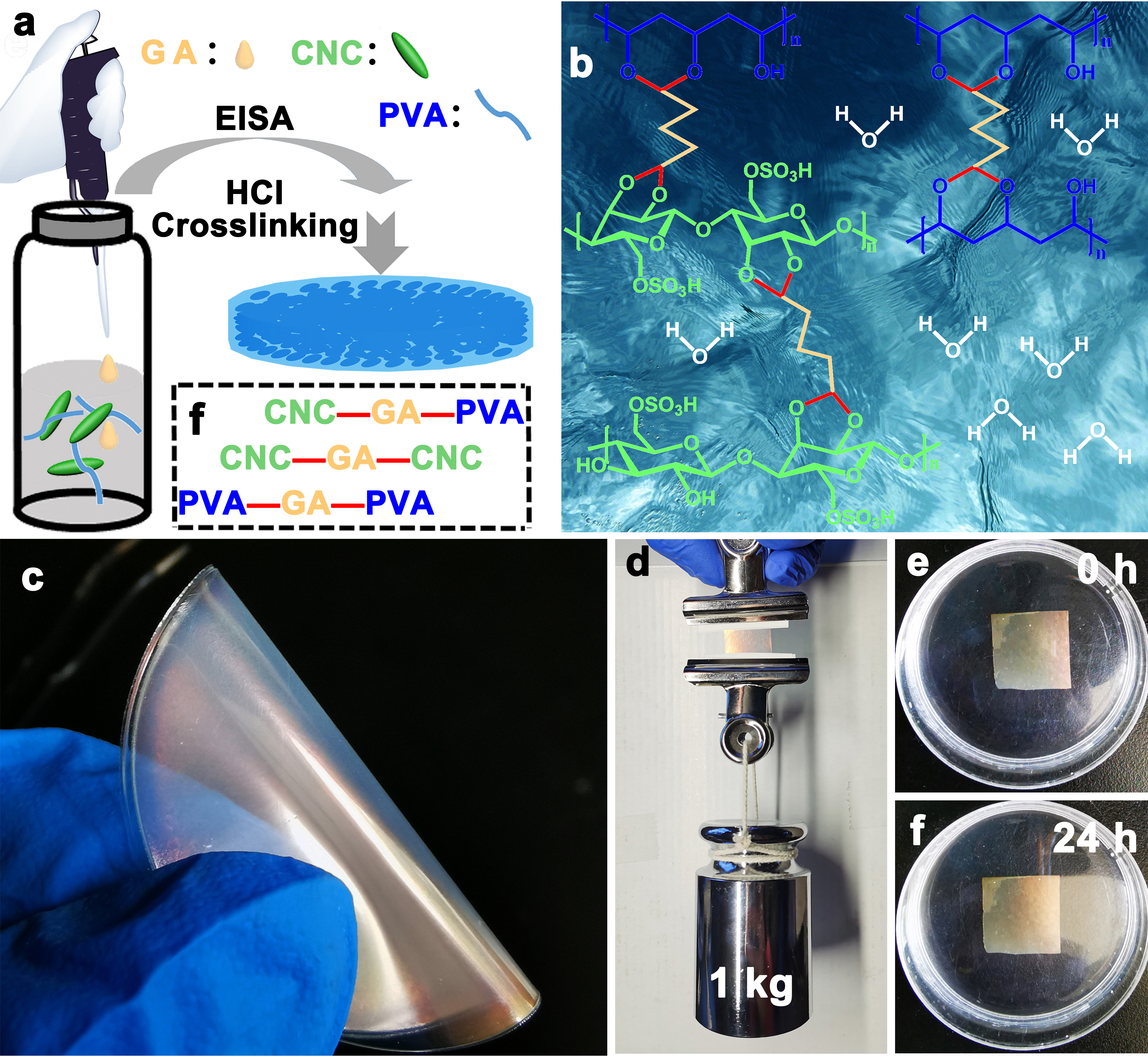Fusheng Zhang, Wenna Ge, Cunli Wang, Xintong Zheng, Dongdong Wang, Xiancheng, Zhang, Xue Wang, Xingya Xue and Guangyan Qing*
ACS Appl. Mater. Interfaces 2021, 13, 17118

Cellulose nanocrystals (CNCs) are powerful photonic building blocks for the fabrication of biosourced colored films. A combination of the advantages of self-assembled CNCs and multiple templating agents offers access to the development of novel physicochemical sensors, structural coatings, and optic devices. However, due to the inherent brittleness and water instability of CNC-derived materials, their further applications are widely questionable and restrictive. Here, a soft polymer of polyvinyl alcohol (PVA) was introduced into the rigid CNC system to balance molecular interactions. Whereafter, two hard/soft nanocomposites are fastened through a cross-linking reaction of glutaraldehyde (GA), resulting in a highly flexible, water-stability, and chiral nematic CNC composite film through evaporation-induced self-assembly technique. For a 1.5 wt% GA-crosslinked 70 wt% CNCs loading film, treatment of it with harsh hydrophilic exposure (soaking in a strong acid, strong base, and seawater) and various organic solvents shows exceptional solvent resistance abilities. Furthermore, the film can even withstand a weight of 167 g cm-2 without failure, which is a highly stiff and durable character. Importantly, the film remains a highly ordered chiral nematic organization, being able to act as a highly transparent substrate for selective reflection of left-handed circularly polarized light, preparing fully covered and patterned full-color coatings on various substrates. Our work will pave the way for applications in low-cost, durable, and photonic cellulosic coatings.